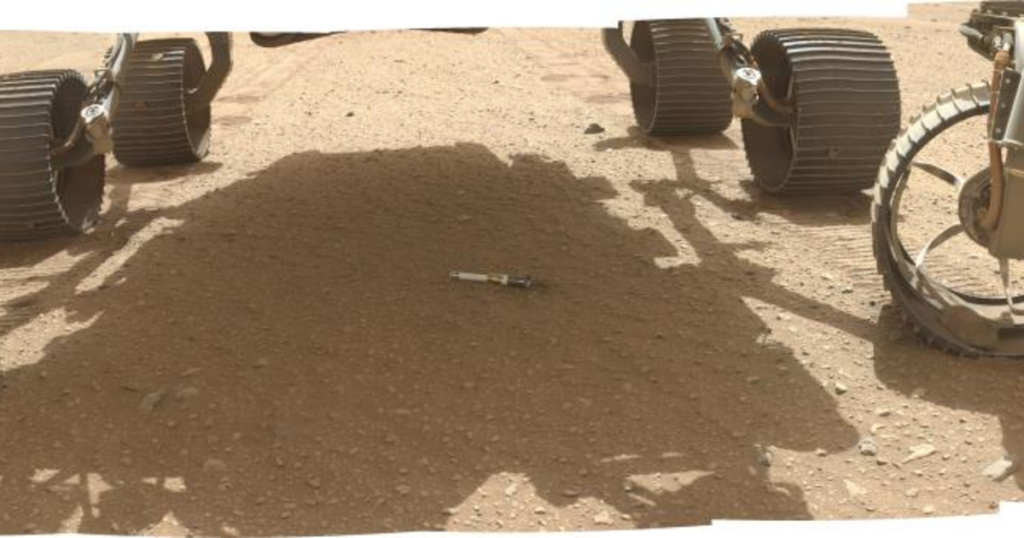NASA’s ambitious Mars Sample Return (MSR) mission is poised to be a landmark event in the history of space exploration. But what if a private company were to play a pivotal role in returning the first-ever samples from Mars? With the rise of private space enterprises, this possibility is more likely than ever. In this article, we explore the potential for private-sector involvement in one of NASA’s most critical and exciting missions.

The Importance of Mars Sample Return
The MSR mission, a collaborative effort between NASA and the European Space Agency (ESA), aims to bring samples from the surface of Mars back to Earth for detailed analysis. These samples will offer unparalleled insights into the Red Planet’s geology, history, and the possibility of past microbial life. This mission could answer one of humanity’s greatest questions: Has life ever existed beyond Earth?
Transporting samples from Mars to Earth presents a monumental challenge, but advances in technology and the growth of the private space sector may provide innovative solutions.
Why Private Companies are Important
The involvement of private companies in space exploration has grown dramatically in recent years. Companies such as SpaceX, Blue Origin, and Boeing have demonstrated that private enterprises can accomplish feats that were once the sole domain of national space agencies. There are several reasons why a private company could be vital in the return of NASA’s Mars samples:
- Cost-effectiveness: Private companies often operate at a lower cost than government agencies, leveraging competitive markets and rapid innovation cycles. This could significantly reduce the overall cost of the MSR mission.
- Technological innovation: Private companies are at the forefront of developing new technologies that can be utilized in space missions. For instance, reusable rockets, developed by SpaceX, could reduce the cost and complexity of launching spacecraft needed for sample retrieval.
- Speed and efficiency: Bureaucracy often slows down government agencies. In contrast, private companies can operate with greater agility and speed, potentially accelerating the timeline for bringing Mars samples back to Earth.
Potential Private Sector Partners
While NASA and ESA have established expertise in planetary exploration, private companies may contribute to the Mars Sample Return mission by providing transportation, technology, or even funding. Here are some of the most likely candidates:
SpaceX
SpaceX has proven its capability in space missions through the development of its Falcon rockets and the Starship, which is intended for deep-space missions, including Mars. Given its focus on Mars colonization, SpaceX would be a natural partner for NASA. The company’s reusable rockets could play a crucial role in transporting Mars samples from orbit back to Earth.
Blue Origin
Founded by Jeff Bezos, Blue Origin has its sights set on space exploration beyond Earth. With its New Shepard and New Glenn rockets, Blue Origin is positioning itself as a leader in commercial spaceflight. Its future capabilities could be instrumental in supporting Mars missions.
Northrop Grumman
Northrop Grumman is already involved in NASA’s MSR mission through its role in developing components for spacecraft. Given its strong partnership with NASA and its deep expertise in aerospace technology, Northrop Grumman may continue to be a significant player in returning Mars samples.
Challenges of Sample Return
Despite the potential for private companies to assist in NASA’s MSR mission, several challenges remain:
- Technical difficulties: Landing on Mars, collecting samples, launching them into Mars orbit, and safely returning them to Earth are incredibly complex tasks. Any company involved would need to overcome these technical hurdles.
- Planetary protection: NASA must ensure that Martian samples are not contaminated by Earth-based organisms and that no potential Martian organisms pose a threat to Earth’s biosphere. This requires strict adherence to planetary protection protocols.
- Collaboration and coordination: Government space agencies and private companies must collaborate effectively. NASA, ESA, and private sector partners will need to align their goals and resources for a successful mission.
Looking to the Future
As private companies continue to push the boundaries of space exploration, their involvement in high-profile missions like the Mars Sample Return is likely to grow. The collaboration between NASA, ESA, and private firms could pave the way for more ambitious space endeavors, such as Mars colonization or human missions to other planets.
The role of private companies in space exploration has already revolutionized how missions are planned, funded, and executed. Their involvement in returning samples from Mars could signal a new era in space exploration where public and private sectors work hand in hand to unlock the mysteries of the cosmos.
Conclusion: A New Frontier of Collaboration
NASA’s Mars Sample Return mission could mark the beginning of a new era in space exploration, where private companies take on an unprecedented role in collaboration with government agencies. This joint effort between public and private entities could accelerate our understanding of Mars and the broader universe.
About The Author
You may also like
-
Official Camera Details Revealed for the OnePlus 13
-
Travel Habits Have Changed a Lot – It’s Time to JOMO
-
It’s Official: This is the Arrival Date of the OnePlus 13
-
Renault Rafale E-Tech Hybrid 200: A Comprehensive Test Review
-
Honor CEO Showed Off the Magic 7 Pro: A Game-Changer in Smartphone Technology
